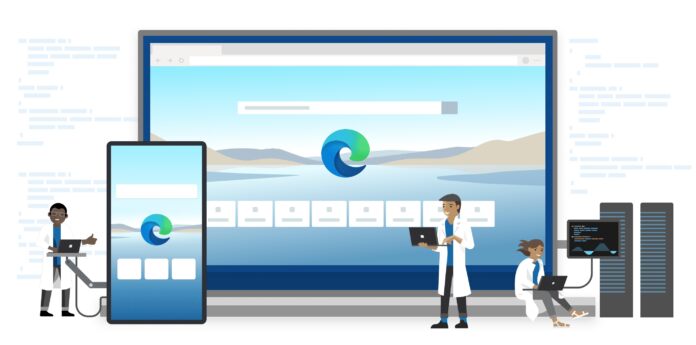Microsoft has begun testing adjustments to the behavior of links clicked from the Windows Widgets panel and search results in Windows 11. These changes aim to ensure that links respect the user's chosen default browser instead of automatically opening in Microsoft Edge. However, this modification currently applies exclusively to countries within the European Economic Area (EEA).
This move is seen as a response to regulatory pressures in Europe. Previously, when users clicked on links from the Windows Widgets panel or search results, they were directed to Microsoft Edge, regardless of their preferred default browser. This practice sparked controversy among users, leading some to develop tools like EdgeDeflector to redirect these links to their chosen browsers. Nevertheless, Microsoft later implemented changes to prevent this workaround.
Microsoft's Response to Inquiries
When asked for comments regarding these changes and the specific focus on EU countries, Microsoft declined to provide any remarks. The Verge reported, “I asked Microsoft to comment on the changes and, in particular, why they're only being applied to EU countries. Microsoft refused to comment.”
Broader Implications and Regulatory Context
This adjustment coincides with the EU's Digital Markets Act, scheduled to take effect in 2024, which aims to address “gatekeepers” that may limit user choices within a company's ecosystem. The act seeks to ensure that platforms like Windows adhere to interoperability and competition rules. One such rule stipulates that users should have the ability to easily modify default settings or uninstall pre-installed applications. This week I reported that Microsoft is trying to have the gatekeeper rules relaxed as the company says Bing does not fall under the description.
Furthermore, Microsoft recently announced its decision to separate Teams from its Microsoft 365 and Office 365 suites in EU markets, commencing in October. This decision stemmed from an antitrust investigation by the European Commission, initiated following a complaint from Slack, one of Microsoft's competitors [source: Times of India, The Verge].
While the exact motivations behind Microsoft's decision remain unclear, it is evident that regulatory pressures in Europe are a significant factor. As the EU's Digital Markets Act approaches its implementation date, tech companies may need to make further adjustments to align with the new regulations.
The EU has a history of taking action against Microsoft for bundling its products, such as Windows Media Player and Internet Explorer, with its Windows operating system. In 2004, the European Commission ordered Microsoft to offer a version of Windows without Media Player bundled.
This resulted in a Windows XP N version available in EU markets. In 2009, the EU also forced Microsoft to offer a browser choice screen to Windows users in Europe, after finding that the company had breached antitrust rules by bundling Internet Explorer with Windows.






